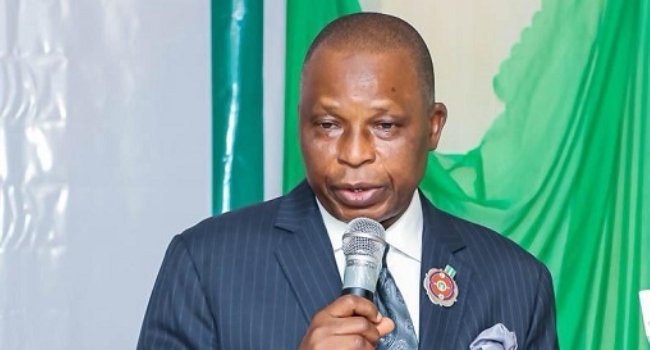In a significant milestone for Nigeria’s anti-corruption efforts, the Attorney General of the Federation (AGF) and Minister of Justice, Lateef Fagbemi, has announced that the nation’s top anti-graft agencies — the Economic and Financial Crimes Commission (EFCC) and the Independent Corrupt Practices and Other Related Offences Commission (ICPC) — collectively recovered a staggering ₦277 billion and $105 million in 2024 alone.
The announcement, made during a recent press briefing in Abuja, underscores the Nigerian government’s renewed commitment to combating financial crimes, recovering looted assets, and ensuring that corruption no longer thrives unchecked in public and private institutions.
Massive Recoveries Signal Stronger Enforcement
The EFCC and ICPC, according to Fagbemi, have ramped up enforcement actions, investigations, and prosecutions, leading to this significant haul of both naira and dollar-denominated assets. These recoveries are the result of a mix of ongoing investigations, concluded cases, and voluntary forfeitures by individuals and entities found guilty or suspected of economic crimes.
Fagbemi hailed the agencies for their resilience and dedication, noting that the sums recovered are not just symbolic victories but tangible resources that can be redirected toward national development.
“These recoveries are a testament to the renewed vigor in our fight against corruption,” he said. “They show that our institutions are not only active but also effective.”
A New Era of Transparency and Accountability
Beyond just recovering assets, Fagbemi stressed the importance of public confidence in how these funds are managed. For too long, Nigerians have raised concerns about the lack of transparency in the utilization of repatriated or recovered assets — fears that the AGF said are being directly addressed.
He revealed that new systems have been instituted to ensure accountability in how every naira and dollar is tracked and used. Chief among these reforms is the dedicated channeling of recovered assets into specific development projects, including infrastructure, education, healthcare, and poverty alleviation programs.
“We have put mechanisms in place to ensure that all recovered and repatriated assets are transparently accounted for and channeled toward developmental priorities that benefit Nigerians directly,” he stated.
This marks a significant shift from past practices, where recovered funds often disappeared into opaque bureaucratic processes or were re-looted. The AGF assured Nigerians that the era of “recovery without results” is over.
Building Public Trust in Anti-Corruption Institutions
The transparency framework, according to Fagbemi, is not just about process — it’s about rebuilding trust in Nigeria’s anti-corruption architecture. He acknowledged that public skepticism remains high, but argued that proactive disclosure, independent auditing, and project-based funding tied to recoveries would help restore confidence.
He further hinted at ongoing collaborations with international partners and civil society organizations to enhance monitoring and reporting mechanisms. These partnerships, he said, will ensure that both local and foreign observers can independently verify how recovered assets are being used.
Looking Ahead: Sustaining the Momentum
The AGF concluded by calling for greater public support and vigilance. He urged citizens, media, and watchdog groups to remain active in holding leaders accountable, stating that the war against corruption cannot be won by government alone.
“The fight against corruption is not just a legal battle; it is a moral duty. With transparency, commitment, and citizen engagement, we can win this war,” he said.
As 2024 progresses, the spotlight remains firmly on how these recovered billions will be deployed. If the government’s promises are kept, Nigerians may finally see corruption proceeds transformed into hospitals, schools, roads, and jobs — a true return of stolen wealth to the people.

